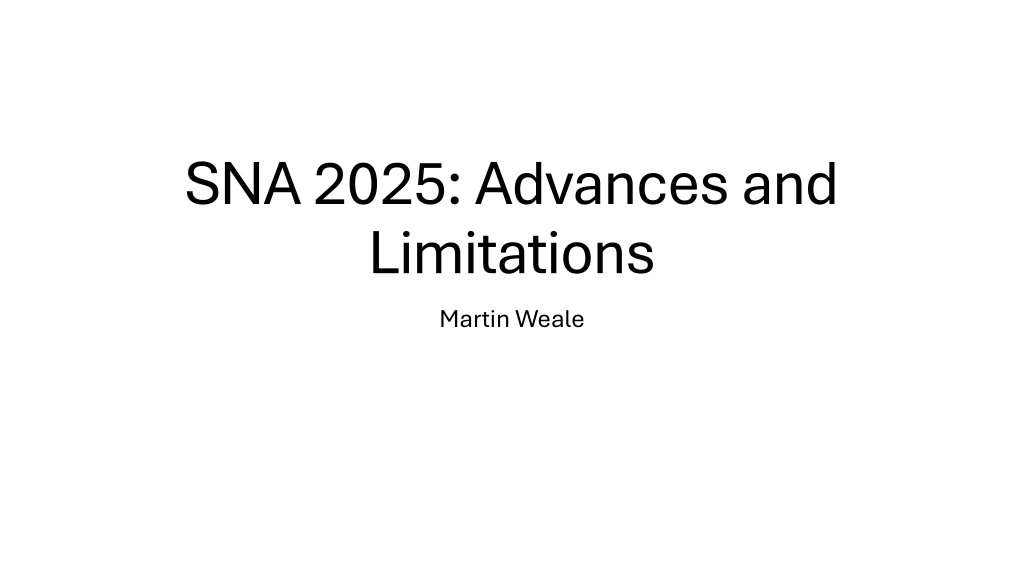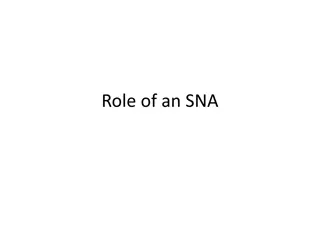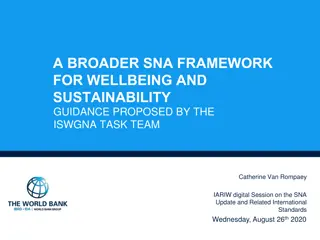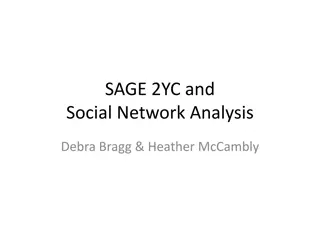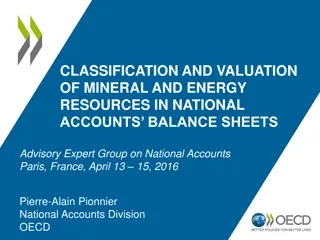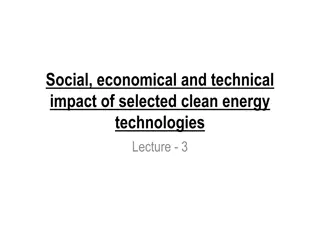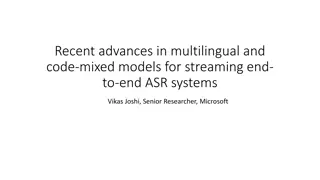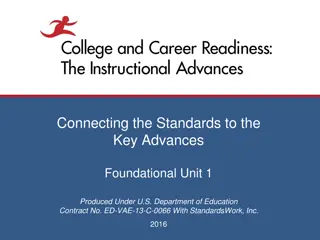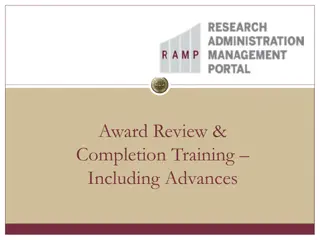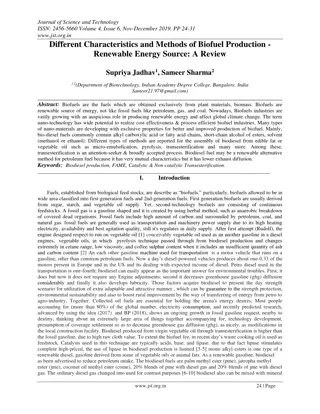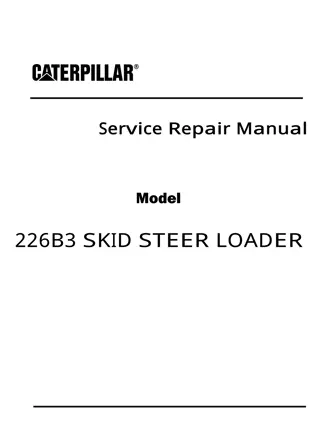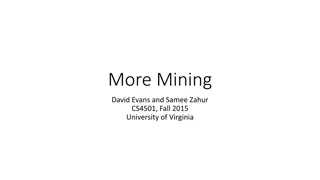Advances and Limitations in the New SNA 2025
This content discusses the advances and limitations of the new System of National Accounts (SNA) 2025, focusing on criteria, recommendations by the National Statisticians Committee for Advice on Standards for Economic Statistics, and the importance of measures net of depreciation and resource decumulation in the UK post-Brexit era. It also delves into issues concerning well-being, sustainability, distributional national accounts, and the need for sensitivity to real income distribution in producing household accounts.
Download Presentation

Please find below an Image/Link to download the presentation.
The content on the website is provided AS IS for your information and personal use only. It may not be sold, licensed, or shared on other websites without obtaining consent from the author.If you encounter any issues during the download, it is possible that the publisher has removed the file from their server.
You are allowed to download the files provided on this website for personal or commercial use, subject to the condition that they are used lawfully. All files are the property of their respective owners.
The content on the website is provided AS IS for your information and personal use only. It may not be sold, licensed, or shared on other websites without obtaining consent from the author.
E N D
Presentation Transcript
SNA 2025: Advances and Limitations Martin Weale
National Statisticians Committee for Advice on Standards for Economic Statistics Since Brexit the UK is no longer obliged to follow the standards set by Eurostat although there are residual obligations. The National Statistician appointed an independent committee to advise him on which standards UK should follow. NSCASE began its work in July 2022. The Committee advises which standards the UK should follow and thus whether the UK should adopt the 2025 SNA.
Criteria It looks at international comparability and continuity over time in reaching conclusions requiring strong reasons for approaches that conflict with this. There may be conflicts between different standards (e.g. SNA and ESA). NSCASE, having reviewed many of the chapters of SNA25, has recommended that this should be the basic standard but that the UK may wish to depart in some places. It has advised that UK public sector output volume measures should reflect quality change a feature of SNA08 but not ESA10. It has recommended an ad hoc treatment of non-monetary gold- an important issue only for a small number of countries heavily involved in the gold trade and not addressed in the draft chapters.
Advances and Limitations in the New SNA i) The importance of measures net of depreciation and resource decumulation. This takes us back to the UK s 1940 national accounts but additionally treats resource decumulation in the same way as depreciation. A focus on well-being and sustainability- but this risks leading to disappointment because no advice is offered on production of a small number of aggregate indicators of well-being. Distributional national accounts, as well as not being accounts, do not answer the question. Net national income deflated by the consumption deflator can be given an interpretation in terms of well-being (Weitzman, 1976). It is easier to calculate and simpler to explain than the SNA25 approach. Sustainability can be defined with reference to net saving- but the relevant concept of saving is unclear.
Advances and Limitations in the New SNA ii) No advice on how to produce aggregates which are sensitive to the distribution of real income, even though production of household accounts by decile is advised. This can be done using the geometric mean of household income and appropriate (democratic) deflators. Of course non-linearities do not work with accounting. Not clear how measures of well-being will reflect the shadow price of free natural resources, but we hear thoughts on this at the conference. There are some inconsistencies in definitions in the existing drafts.
